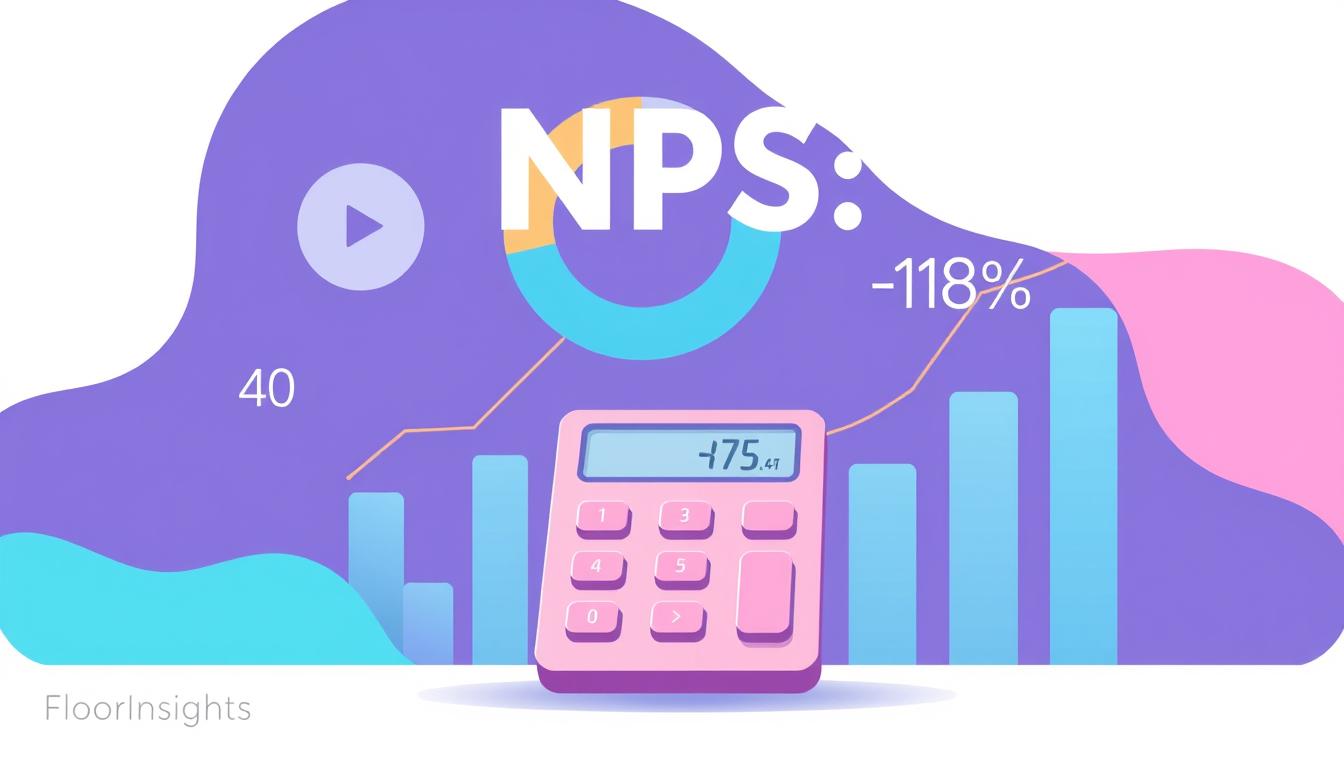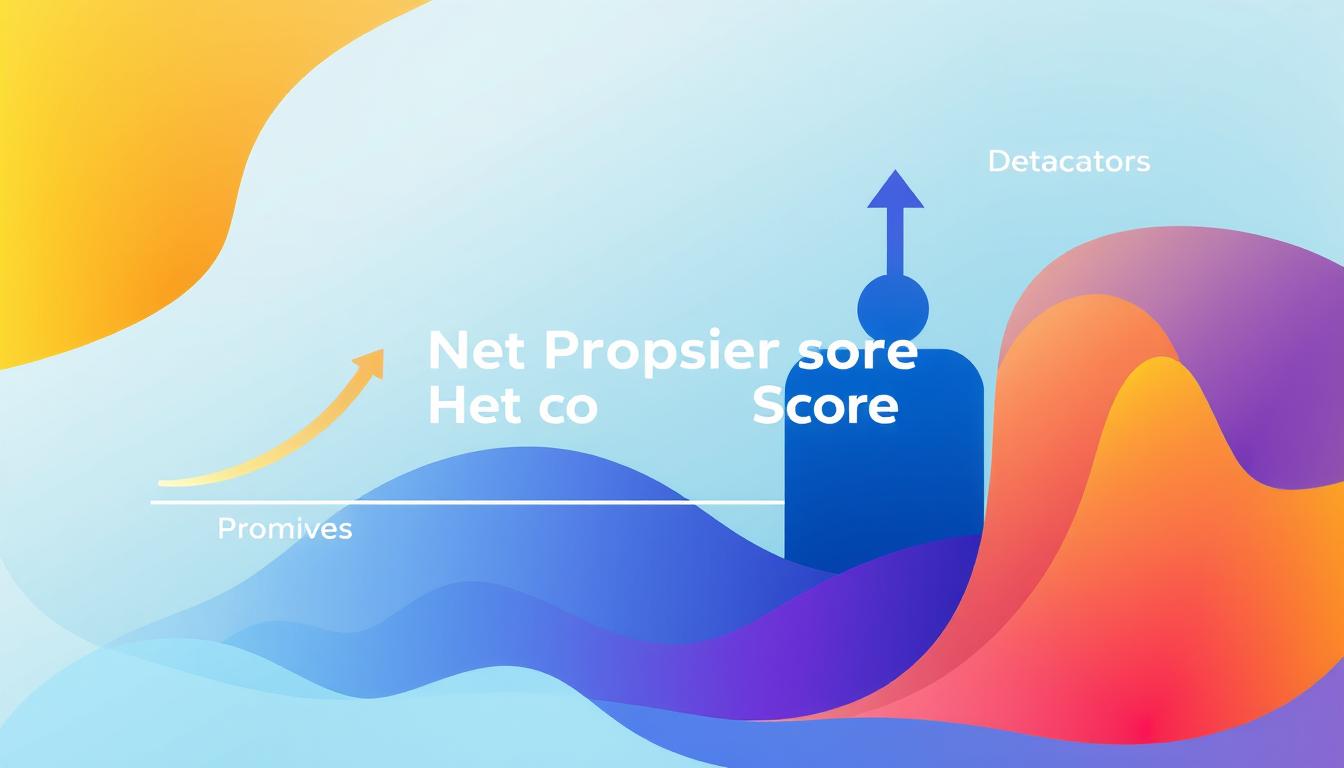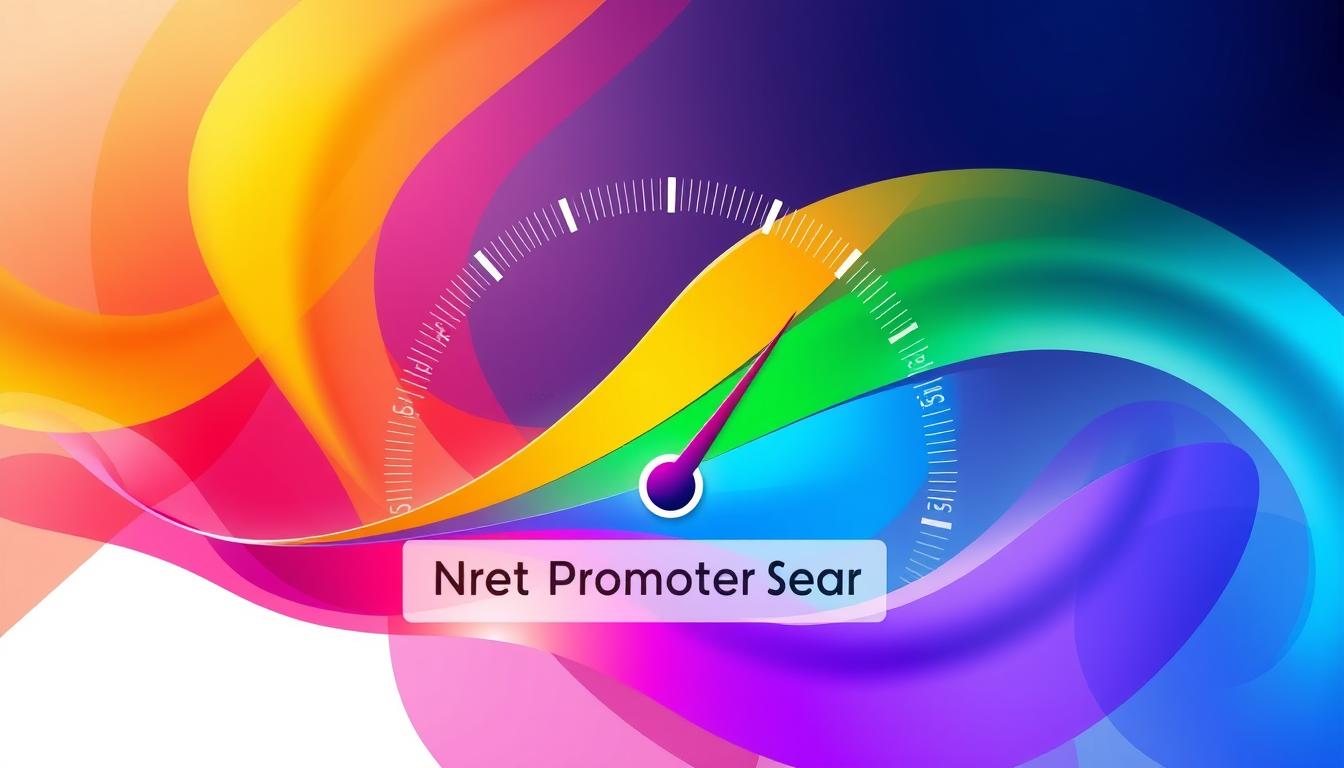In the ever-evolving landscape of customer relationships, businesses often find themselves grappling with the challenge of managing not just their promoters, but also their detractors. While it may seem counterintuitive, retaining and nurturing these detractors can be a crucial driver of business growth. The Net Promoter Score (NPS), a widely-adopted metric for measuring customer loyalty, holds the key to unlocking the true power of these seemingly disgruntled individuals.
By understanding the underlying reasons behind detractors‘ dissatisfaction and proactively addressing their concerns, we can transform these critics into loyal advocates. This strategic shift not only strengthens customer relationships but also provides invaluable insights that can shape the future direction of our products and services.
Key Takeaways
- Retaining detractors is crucial for business growth and customer loyalty
- The Net Promoter Score (NPS) is a powerful metric for identifying and addressing detractors‘ concerns
- Proactively addressing detractors‘ issues can turn them into loyal advocates
- Detractors provide valuable insights that can drive product and service improvements
- Fostering a customer-centric culture is essential for delivering exceptional customer experiences
Unveiling the Power of the Net Promoter Score
The Net Promoter Score (NPS) is a widely-used metric that provides valuable insights into customer loyalty and satisfaction. By measuring how likely customers are to recommend a product or service to others, the NPS helps businesses understand the overall customer experience and identify areas for improvement.
What is the Net Promoter Score?
The NPS is calculated based on the response to a single question: “On a scale of 0 to 10, how likely are you to recommend [company/product/service] to a friend or colleague?” Customers are then categorized into three groups:
- Promoters (score 9-10): Loyal enthusiasts who will keep buying and refer others
- Passives (score 7-8): Satisfied but unenthusiastic customers who are vulnerable to competitive offers
- Detractors (score 0-6): Unhappy customers who can damage your brand and impede growth through negative word-of-mouth
How the Net Promoter Score Drives Growth
The NPS is a powerful tool for driving business growth. By understanding the proportion of promoters, passives, and detractors, companies can focus their efforts on retaining and converting detractors into loyal advocates. This not only improves customer satisfaction and retention but also fuels positive word-of-mouth and accelerates new customer acquisition.
| Customer Segment | Impact on Business Growth |
|---|---|
| Promoters | Loyal, enthusiastic customers who drive referrals and repeat business |
| Passives | Satisfied but unenthusiastic customers who are susceptible to competitors |
| Detractors | Unhappy customers who can damage your brand and impede growth through negative word-of-mouth |
By focusing on retaining detractors and converting them into promoters, businesses can unlock the true power of the Net Promoter Score and drive sustainable growth.
Understanding the Importance of Detractors
Contrary to popular belief, detractors are not merely a liability for businesses. These individuals, who rate a company’s products or services as a 6 or below on the Net Promoter Score (NPS) scale, can actually provide invaluable insights that drive customer retention and business growth.
While it’s tempting to focus solely on the needs of our promoters – those who enthusiastically recommend our brand – understanding the perspectives of our detractors is equally crucial. Their candid feedback, if addressed properly, can unveil areas for improvement, leading to an enhanced customer experience and stronger customer relationships.
| NPS Category | Score Range | Implications |
|---|---|---|
| Promoters | 9-10 | Loyal customers who actively promote the brand |
| Passives | 7-8 | Satisfied but unenthusiastic customers who may be susceptible to competitors |
| Detractors | 0-6 | Unhappy customers who can negatively impact the brand through word-of-mouth |
By understanding the concerns of our detractors, we can uncover opportunities to address their pain points, strengthen our customer relationship management, and ultimately drive sustainable growth. Retaining detractors is not only a matter of customer satisfaction but also a strategic imperative for businesses seeking to thrive in today’s competitive landscape.
The ability to learn from our detractors is a crucial component of building a customer-centric organization.
As we delve deeper into the importance of detractors, we’ll explore practical strategies for turning these potential liabilities into valuable assets that contribute to our company’s long-term success.
Turning Detractors into Promoters
Retaining detractors is a crucial aspect of driving business growth. By addressing their concerns and improving their overall customer experience, we can transform these detractors into loyal advocates for our brand. This section will explore effective strategies to turn detractors into promoters, empowering them to become our greatest champions.
Addressing Detractors’ Concerns
The first step in turning detractors into promoters is to understand their specific concerns and pain points. We must actively listen to their feedback and address their issues with empathy and a genuine desire to find solutions. By demonstrating our commitment to resolving their problems, we can begin to rebuild trust and foster a more positive perception of our brand.
Improving the Customer Experience
Enhancing the overall customer experience is a crucial factor in converting detractors into promoters. This may involve streamlining our processes, improving product quality, or enhancing our customer service. By consistently delivering a superior customer experience, we can inspire detractors to reconsider their negative perceptions and become more enthusiastic about our brand.
To illustrate the impact of improving the customer experience, consider a recent study that found a 5% increase in customer retention can lead to a 25-95% increase in profitability. By focusing on addressing detractors‘ concerns and enhancing the customer experience, we can not only retain our existing customers but also transform them into loyal promoters who actively advocate for our brand.
“The best way to find out if you can trust somebody is to trust them.” – Ernest Hemingway
By embracing a customer-centric approach and empowering our team to deliver exceptional experiences, we can unlock the true potential of our detractors and convert them into passionate advocates for our brand. This, in turn, will drive long-term customer retention and fuel the continued growth of our business.
The Net Promoter Score: A Catalyst for Customer Loyalty
The Net Promoter Score (NPS) is not just a metric; it’s a powerful tool that can transform the way businesses approach customer loyalty. By delving into the insights provided by the NPS, organizations can uncover a wealth of opportunities to strengthen their relationships with customers and foster long-term engagement.
At the heart of the NPS lies a customer-centric approach that empowers businesses to better understand their audience and cater to their needs. When companies prioritize the voice of the customer and actively address their concerns, they build a foundation of trust and loyalty that can propel their growth.
| Metric | Impact on Customer Loyalty |
|---|---|
| Net Promoter Score | Directly correlates with customer retention, referrals, and increased revenue |
| Customer Engagement | Higher engagement leads to greater loyalty and a stronger emotional connection with the brand |
| Customer-Centric Initiatives | Personalized experiences and tailored solutions enhance customer satisfaction and loyalty |
By leveraging the insights from the Net Promoter Score, businesses can identify areas for improvement, address customer pain points, and implement strategies that foster a culture of customer loyalty. This holistic approach not only enhances the overall customer experience but also positions the organization as a customer-centric leader in its industry.
“The true measure of a brand’s success is the loyalty and advocacy of its customers. The Net Promoter Score is the key to unlocking this powerful metric.”
As businesses navigate the ever-evolving landscape of customer expectations, the Net Promoter Score emerges as a reliable and insightful tool to guide their journey. By embracing this customer-centric mindset, organizations can unlock the true potential of their customer relationships and drive sustainable growth through loyalty and advocacy.

Leveraging Customer Feedback for Business Growth
In the pursuit of driving sustainable business growth, customer feedback has become an invaluable asset. By actively listening to our customers and leveraging the insights derived from the Net Promoter Score (NPS), we can uncover a goldmine of information that can propel our organization forward.
Gathering Valuable Customer Insights
The Net Promoter Score is a powerful metric that goes beyond just measuring customer satisfaction. It provides us with a deeper understanding of our customers’ perceptions, preferences, and pain points. By analyzing the feedback gathered through NPS surveys, we can identify areas for improvement, prioritize our efforts, and make informed decisions that address the evolving needs of our customer base.
- Understand customer pain points and frustrations
- Identify opportunities to enhance the customer experience
- Gain insights into customer preferences and expectations
- Uncover trends and patterns that can inform strategic decisions
When we effectively harness the power of customer feedback, we unlock the potential to not only improve our products and services but also strengthen our customer relationship management strategies. This, in turn, can lead to increased customer loyalty, higher retention rates, and ultimately, sustainable business growth.
“Listening to our customers is the key to unlocking the true potential of our business. Their feedback is the compass that guides us towards growth and innovation.”
By cultivating a customer-centric mindset and leveraging the insights gained from the Net Promoter Score, we can position our organization for long-term success and growth. The path to business growth starts with understanding and addressing the needs of our most valuable asset – our customers.
Building a Customer-Centric Culture
At the heart of delivering an exceptional customer experience lies the importance of fostering a customer-centric culture within an organization. When employees are empowered to prioritize the needs and preferences of customers, the impact on the Net Promoter Score, customer engagement, and overall customer experience can be truly transformative.
Empowering Employees to Deliver Excellence
Cultivating a customer-centric mindset starts with empowering employees to take ownership of the customer journey. By providing them with the necessary tools, resources, and decision-making authority, companies can enable their frontline teams to address customer concerns promptly and effectively.
This empowerment not only enhances customer engagement but also instills a sense of pride and ownership among employees, further strengthening their commitment to delivering customer experience excellence.
- Offer comprehensive training programs to equip employees with the skills and knowledge to handle diverse customer situations.
- Encourage open communication and feedback channels, empowering employees to share their insights and ideas for improving the customer experience.
- Implement recognition and reward systems that celebrate employees who go above and beyond in delighting customers.
By fostering a culture that values employee empowerment and customer-centricity, organizations can unlock the full potential of their workforce and drive sustained growth through enhanced Net Promoter Scores and loyal customer relationships.
“Empowered employees are the key to delivering exceptional customer experiences.”
Integrating the Net Promoter Score into Your Strategy
Leveraging the Net Promoter Score (NPS) can be a game-changer for businesses seeking to drive customer satisfaction, retention, and overall growth. By seamlessly integrating NPS into your strategic framework, you can unlock valuable insights that will shape your decision-making and propel your organization forward.
One of the key steps in this process is aligning your NPS data with your core business objectives. Analyze how your NPS scores correlate with important metrics like customer lifetime value, revenue, and referrals. This holistic approach will help you identify the areas where NPS can have the most significant impact on your bottom line.
Additionally, regularly review your NPS data to uncover trends and patterns. Are there specific customer segments or touchpoints that are driving lower scores? Use these insights to strategically allocate resources, refine your customer experience, and address the root causes of customer dissatisfaction.
| Metric | Impact on Business Growth |
|---|---|
| Customer Lifetime Value | Higher NPS scores are directly correlated with increased customer retention and lifetime value, boosting long-term profitability. |
| Revenue | Promoters are more likely to make repeat purchases and refer new customers, driving a significant increase in revenue. |
| Referrals | Satisfied customers with high NPS scores are more inclined to recommend your products or services, expanding your customer base. |
By integrating the Net Promoter Score into your overall business strategy, you’ll be equipped to make data-driven decisions that prioritize customer experience, foster loyalty, and ultimately accelerate your company’s growth. Embrace the power of NPS to transform your organization into a customer-centric powerhouse.
Best Practices for Retaining Detractors
Proactive Communication and Follow-up
Effectively addressing the concerns of detractors is crucial for transforming them into loyal advocates. At the heart of this process lies the importance of proactive communication and follow-up. By actively engaging with detractors and demonstrating our commitment to resolving their issues, we can cultivate a stronger customer relationship management strategy and ultimately enhance the Net Promoter Score.
Prompt response and personalized attention are key to addressing detractors‘ concerns. We must make it a priority to reach out to unhappy customers, listen attentively to their feedback, and work diligently to find solutions that meet their needs. By maintaining open and transparent communication throughout the process, we can build trust, demonstrate our genuine interest in their satisfaction, and pave the way for a positive transformation.
Furthermore, consistent follow-up is essential to ensure the successful resolution of detractors‘ issues. We must follow through on our commitments, provide regular updates, and be available to address any lingering concerns. This sustained effort not only shows our dedication to customer service but also highlights our commitment to customer relationship management, a crucial factor in driving customer loyalty and a higher Net Promoter Score.
FAQ
What is the Net Promoter Score?
The Net Promoter Score (NPS) is a customer loyalty metric that measures the willingness of customers to recommend a company’s product or service to others. It classifies customers into three categories: promoters, passives, and detractors.
How does the Net Promoter Score drive business growth?
The Net Promoter Score provides valuable insights into customer sentiment and can be used to identify areas for improvement in the customer experience. By focusing on enhancing the experience for all customer segments, including detractors, businesses can foster higher customer loyalty and advocacy, ultimately driving sustainable growth.
Why is it important to retain detractors?
Contrary to popular belief, detractors can be a valuable asset for businesses. They provide honest feedback and insights that can be used to identify and address pain points in the customer experience. By actively engaging with detractors and addressing their concerns, businesses can transform them into loyal advocates, ultimately contributing to long-term growth.
How can businesses turn detractors into promoters?
Businesses can turn detractors into promoters by actively addressing their concerns, improving the overall customer experience, and demonstrating a genuine commitment to customer satisfaction. This may involve proactive communication, targeted problem-solving, and a customer-centric approach that prioritizes the needs and feedback of all customers.
How can the Net Promoter Score be a catalyst for customer loyalty?
The Net Promoter Score can be a powerful tool for building customer loyalty and engagement. By using NPS data to continuously improve the customer experience and address the concerns of all customer segments, businesses can foster a customer-centric culture and strengthen their relationships with customers, ultimately driving long-term loyalty and advocacy.
How can businesses leverage customer feedback for growth?
Businesses can leverage customer feedback, particularly the Net Promoter Score, to gather valuable insights and drive growth. By actively listening to customers, understanding their pain points, and using NPS data to inform strategic decision-making, businesses can make informed decisions that enhance the customer experience and align with their evolving needs.
What are the key elements of a customer-centric culture?
Building a customer-centric culture involves empowering employees to deliver an exceptional customer experience, aligning the organization’s values and processes with the needs of customers, and continuously seeking feedback and input to drive improvements. This customer-focused approach, underpinned by the insights from the Net Promoter Score, can be a powerful catalyst for driving customer loyalty and business growth.
How can businesses effectively integrate the Net Promoter Score into their strategy?
To effectively integrate the Net Promoter Score into their overall strategy, businesses should align NPS data with key business objectives, use the insights to inform decision-making, and establish clear accountability and action plans for improving the customer experience. By making the Net Promoter Score a central part of their strategy, businesses can ensure that customer-centricity is embedded throughout the organization.
What are the best practices for retaining detractors?
The best practices for retaining detractors include proactive communication and follow-up, empathetic listening to understand their concerns, and a genuine commitment to addressing their pain points. By demonstrating a customer-centric approach and a willingness to learn from detractors, businesses can transform them into loyal advocates and contributors to long-term growth.






